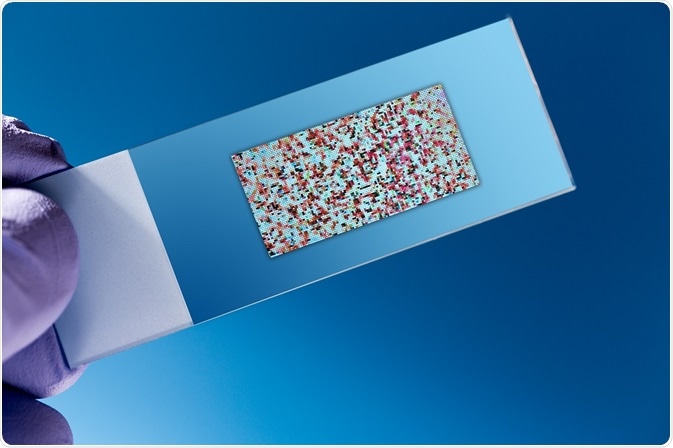Personalized medicine is still in its infancy, however, the future of this approach holds great potential within the field of healthcare.
 Image Credit: science pics / Shutterstock
Image Credit: science pics / Shutterstock
Previous medical approaches have been based upon a policy of “one size fits all”, applying the same treatments to those with the same diseases. However, this has many limitations as there are a whole range of disease contributing factors, including genetics and environments, which affect the efficacy of certain medications.
Through genome analysis, scientists can personalize drugs to make them more specific and effective, thereby improving treatment outcomes. However, there are several drawbacks to this approach. This article aims to discuss the pros and cons of personalized medicine and assess its possible future roles.
Advantages of personalized medicine
There are many advantages to the applications of personalized medicine within healthcare. Firstly, this approach can be used to detect and diagnose diseases in a highly specific manner, categorizing them by genetic variation rather than by symptom. This allows treatments which are increasingly specific and effective, improving the prognosis of many.
For example, melanomas which have a specific mutation in the BRAF gene can be targeted by a highly specific, BRAF-targeting drug. Typical treatment for melanomas are not viable in these patients, and therefore this treatment dramatically increases prognosis.
Additionally, genomic analysis can reveal genetic variations which can guide drug dosage, meaning that patients can get maximal drug benefit with minimal side effects. This has been applied to a whole range of diseases so far, such as cancer, mental illness and inflammatory bowel disease.
One such example is the detection of specific variations within CYP450 genes. There are many different variations of these genes, which are involved in the metabolism of a whole plethora of drugs. Therefore, identification of specific gene variants allows the prescription of drugs at effective levels, whilst minimizing harmful side effects.
Another application of personalized medicine is within the prevention of disease. Using sequencing technologies, susceptibility to disease can be analysed, allowing a focus upon prevention with both treatments and lifestyle changes.
For example, women who have variations of BRCA1/2 have an over 80% chance of developing breast cancer and 60% chance of developing ovarian cancer. Detecting these variants therefore allows preventative surgery and chemotherapy treatments.
Another advantage of personalized medicine is the reduction of trail-and-error prescriptions. Initial prescriptions are often not effective due to genetic variations, meaning that patients must try a range of drugs to find one that works for them.
However, by analyzing of a patient’s genome, more specific drugs can be prescribed, giving more effective benefits, reducing the time required to identify effective drugs and minimizing the cost of healthcare.
The expense of healthcare is greatly increased when patients do not adhere to treatments, as this often leads to additional health problems. However, the greater effectiveness and minimal harmful side effects of personalized medicines can motivate patients to adhere to their medications, reducing the cost and increasing prognosis.
Personalized medicine approaches can detect genetic predisposition to high cholesterol, which can make patients stick to their lifestyle changes as they understand the risk.
The drawbacks of personalized medicine
Despite numerous benefits of personalized medicine, as previously described, there are also many drawbacks which could prevent it from becoming the future of healthcare.
A major concern of the increased use of personalized medicine is the ethical issue of patient privacy. For example, there are concerns that some may not use this information in an ethical way, such as insurance companies who may not offer certain policies to those with genetic predisposition. There are also other ethical concerns, such as incidental findings.
Locating a life-altering disease which has no treatment options is arguably unethical, as knowledge of these diseases can lead to mental health problems and can have a huge impact on a patient’s life. Additionally, incorrect findings are also an ethical problem, as they can lead to unrequired expense of healthcare and psychological issues.
Furthermore, there are many issues within the legal sector. For example, there are problems within intellectual property rights, as some argue that making advancements only available to some will hold back the development of future personalized medicines. Additionally, regulation laws will have to be reassessed, as they currently cannot be applied to personalized medicine.
What’s next?
Overall, there are many ethical and legal issues which pose a threat to the future of personalized medicine. However, there is no denying that there are copious advantages within this approach to medical care, with increased effectiveness and minimal side effects. Therefore, it could be argued that overall, the future of healthcare is personalized medicine.
Further Reading
Last Updated: Feb 27, 2019